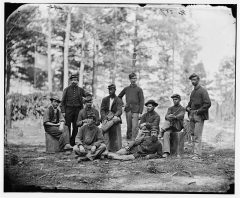Conference at the University of Pennsylvania, McNeil Center for Early American Studies, and The University of Delaware 8 – 10 November 2018
 Keynote Speaker: Professor Leora Auslander, University of Chicago
Keynote Speaker: Professor Leora Auslander, University of Chicago
Program Committee: Dr Zara Anishanslin (University of Delaware), Dr Manuel Barcia, (University of Leeds), Professor Kathy Brown, (University of Pennsylvania), Dr Joshua Brown, (The Graduate Center, CUNY), Dr Joanna Cohen, (Queen Mary University of London), Dr Christian Crouch (Bard College), Dr Catherine Dann Roeber, (Winterthur Museum), Dr Bronwen Everill, (Cambridge University), Dr Ignacio Gallup-Diaz, (Bryn Mawr College), Dr Benjamin Irvin (Indiana University and Editor, Journal of American History).
How does war end and who ends it? Historians often turn to diplomacy and formal politics to answer this question. It is clear, however, that a much broader population, both military and civilian, shape the outcome of wars. Yet there has been little systematic research on the roles of ordinary people in these processes. This conference will explore the processes that exist between treaty-making and memory-making, interrogating the messy, uncoordinated ways in which individuals, communities, nations, and empires come to terms with the meanings of war and the promises of peace. This conference seeks to gather historians, art historians, literary scholars, archivists and curators to answer these important questions.
We invite proposals for a wide-ranging, interdisciplinary conference. We seek papers that privilege the object and the image in order to examine how material and visual culture shaped the making and meaning of war and peace. This focus on the material and visual allows us to investigate the ethical questions and emotional implications posed by the object and the image. We encourage paper proposals on topics such as (but not limited to):
• Individual responses to war (emotional, intellectual, political, aesthetic and physical) that were enabled, mediated or amplified by image and/or objects.
• Collective responses of communities (local, class-based, race-based, gender-based, regional) to former enemies both local and distant and how these responses shaped landscapes of nationalism and empire.
• Explorations as to whether military and civilians, as well as men, women, and children approach the process of coming to terms with war differently.
The conference will feature a keynote address, discussion-intensive panels of research in progress with senior scholars acting as discussants, a plenary workshop on the ways in which boundaries between war and peace are drawn up, and break-out sessions on pedagogical approaches to material and visual culture. Most papers will be pre-circulated via a password protected website, accessible only to conference registrants, who will be expected to read them in advance. Presenters will make brief oral summaries of pre-circulated papers. Papers of approximately 7,500 words will be due for pre-circulation no later than 1 October 2018. Some support for travel and lodging expenses will be available to conference presenters.
Proposals are welcome from scholars in all disciplines at all levels and should be submitted to mceas@ccat.sas.upenn.edu no later than 30 September 2017.
Please include a prospectus of no more than 300 words and a one-page curriculum vitae, together in one pdf document labeled with the proposer’s surname. The author’s name, paper title, institutional affiliation, and email address should appear at the top of the first page. Decisions will be made in the Fall of 2017.